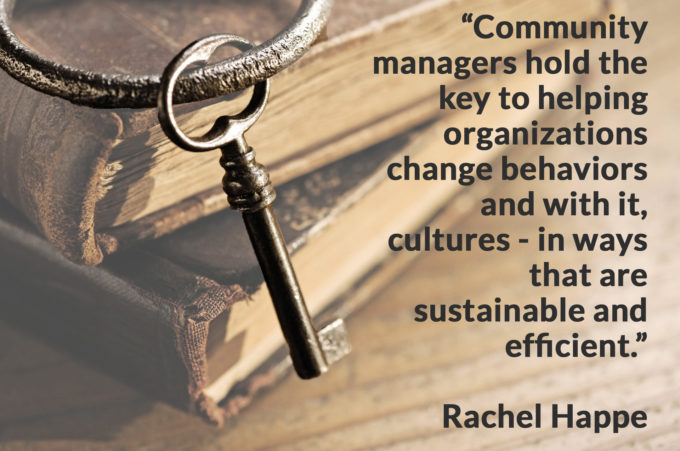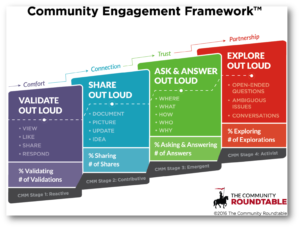All engagement is not the same…and different engagement behaviors generate different outcomes.
Engagement is challenging to measure because engagement is not a single action, but a range of behaviors. Without getting more specific about what kind of engagement is meaningful – and what is meaningful changes based on the objective of your community initiative – it is impossible to measure and connect to business value.
The Community Roundtable’s Community Engagement Framework is designed to help categorize, measure, and understand the impact of different types of engagement. We break engagement behaviors down into the following categories:
- Explore
- Ask
- Share
- Validate
These categories require different levels of connection, motivation, and cultural maturity and produce different outcomes.
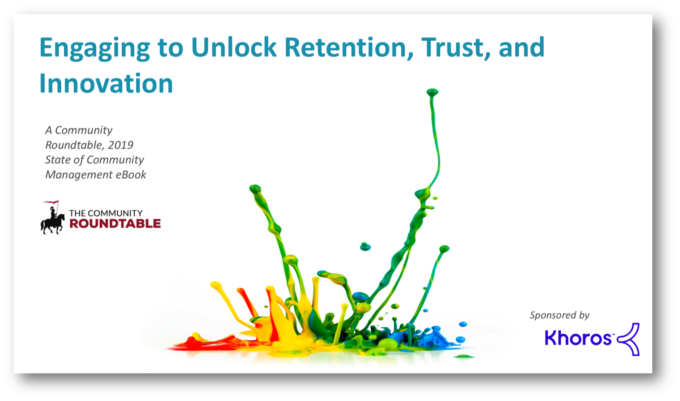
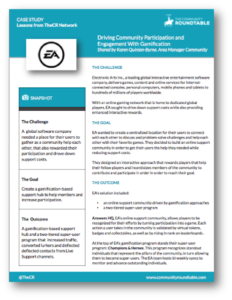
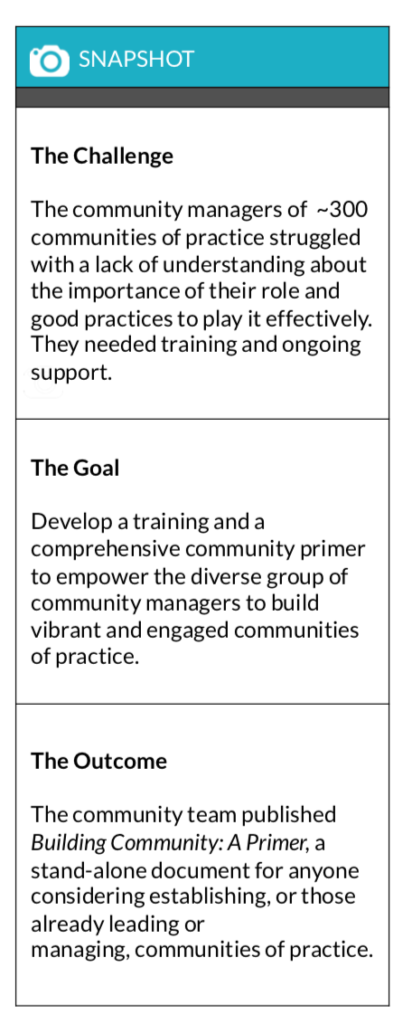
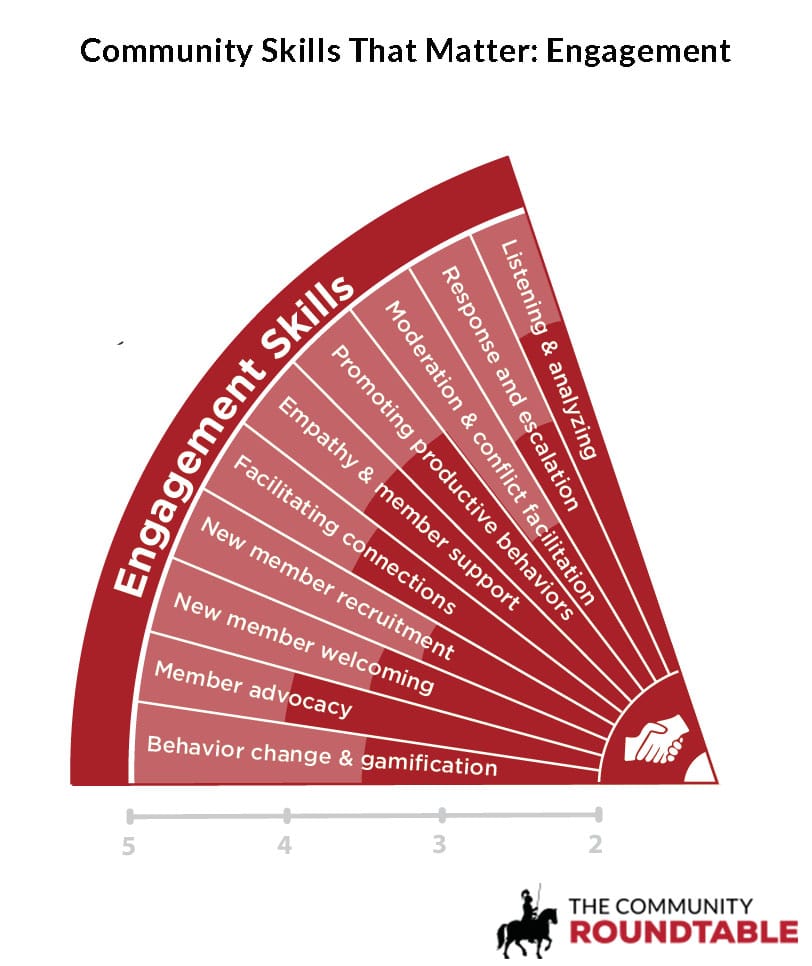
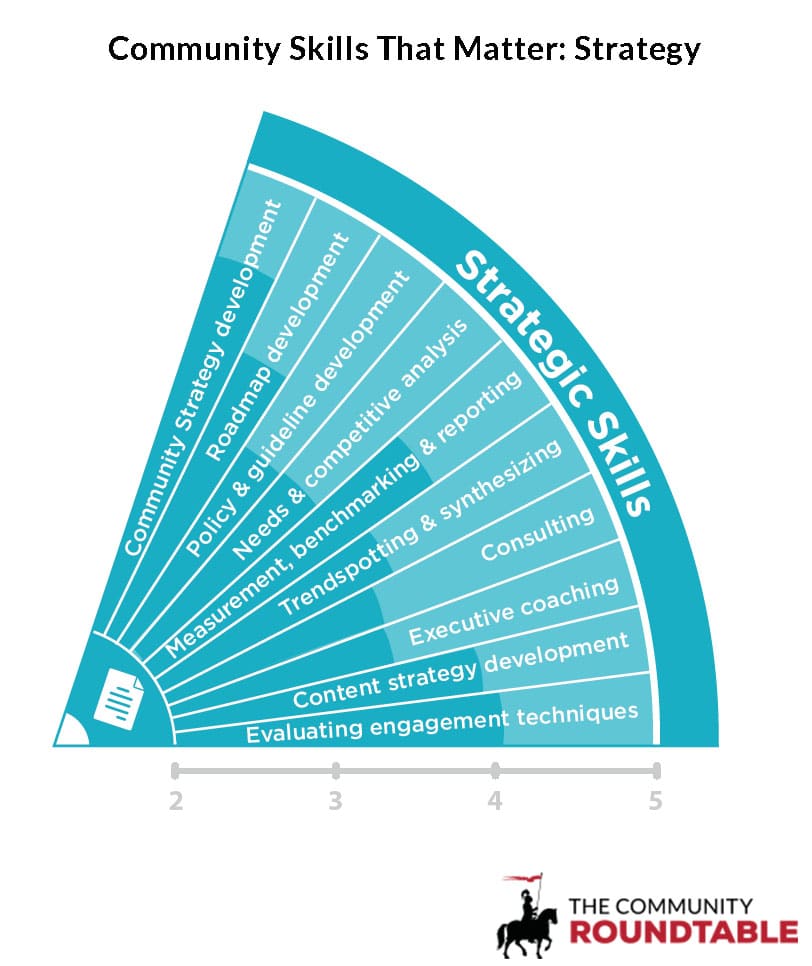
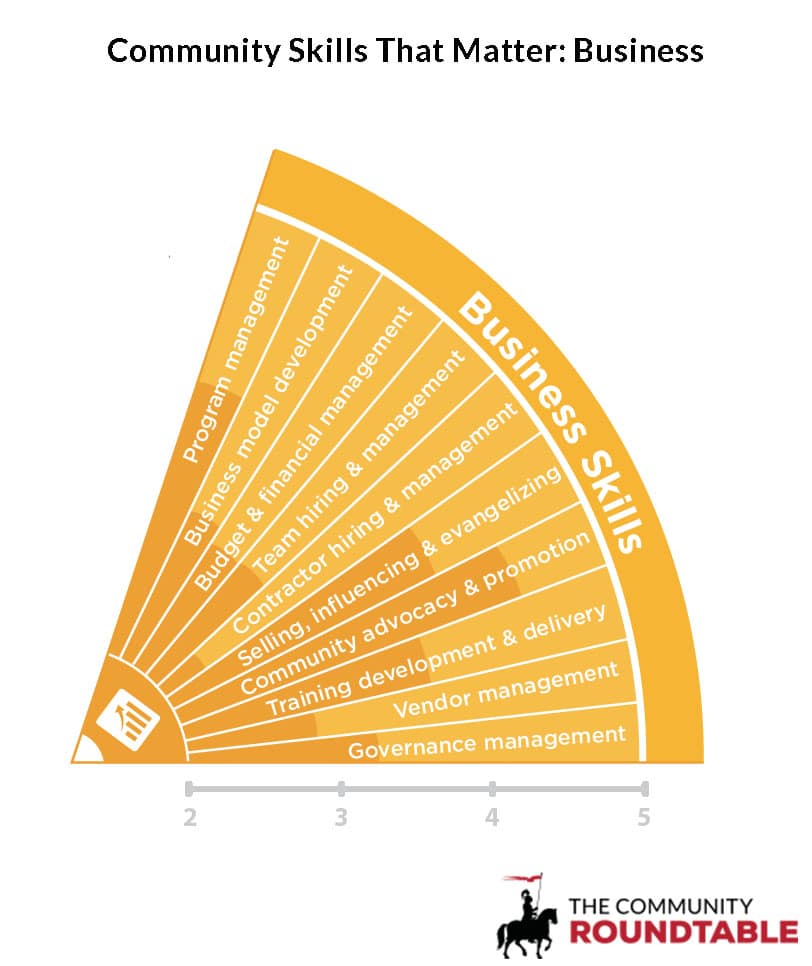
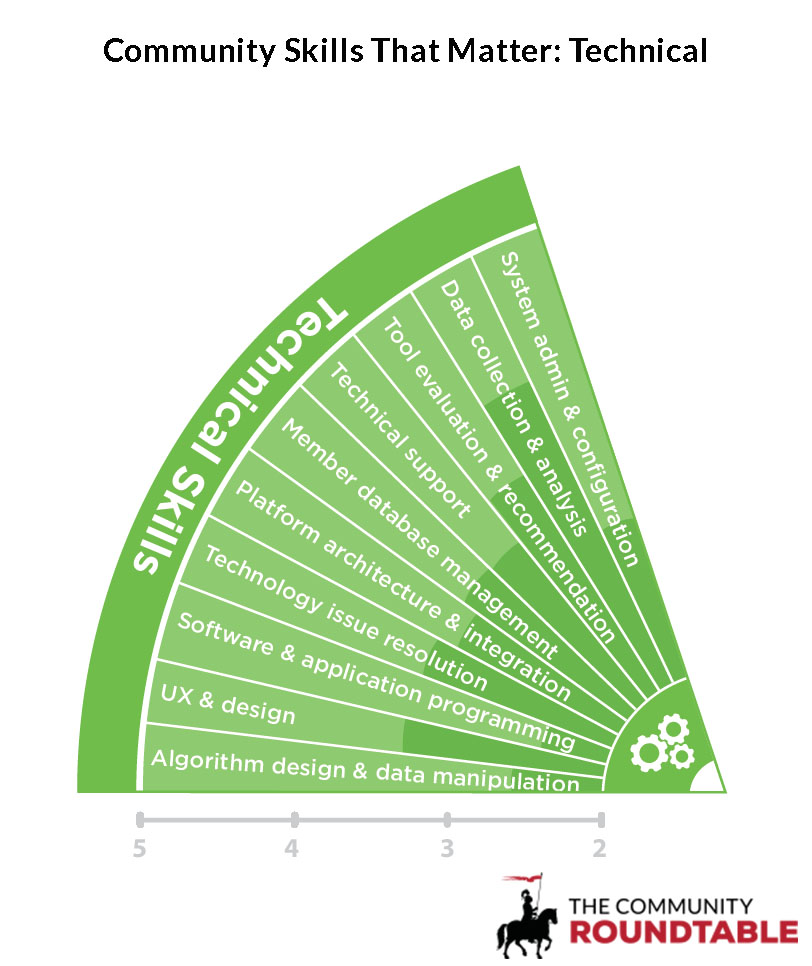
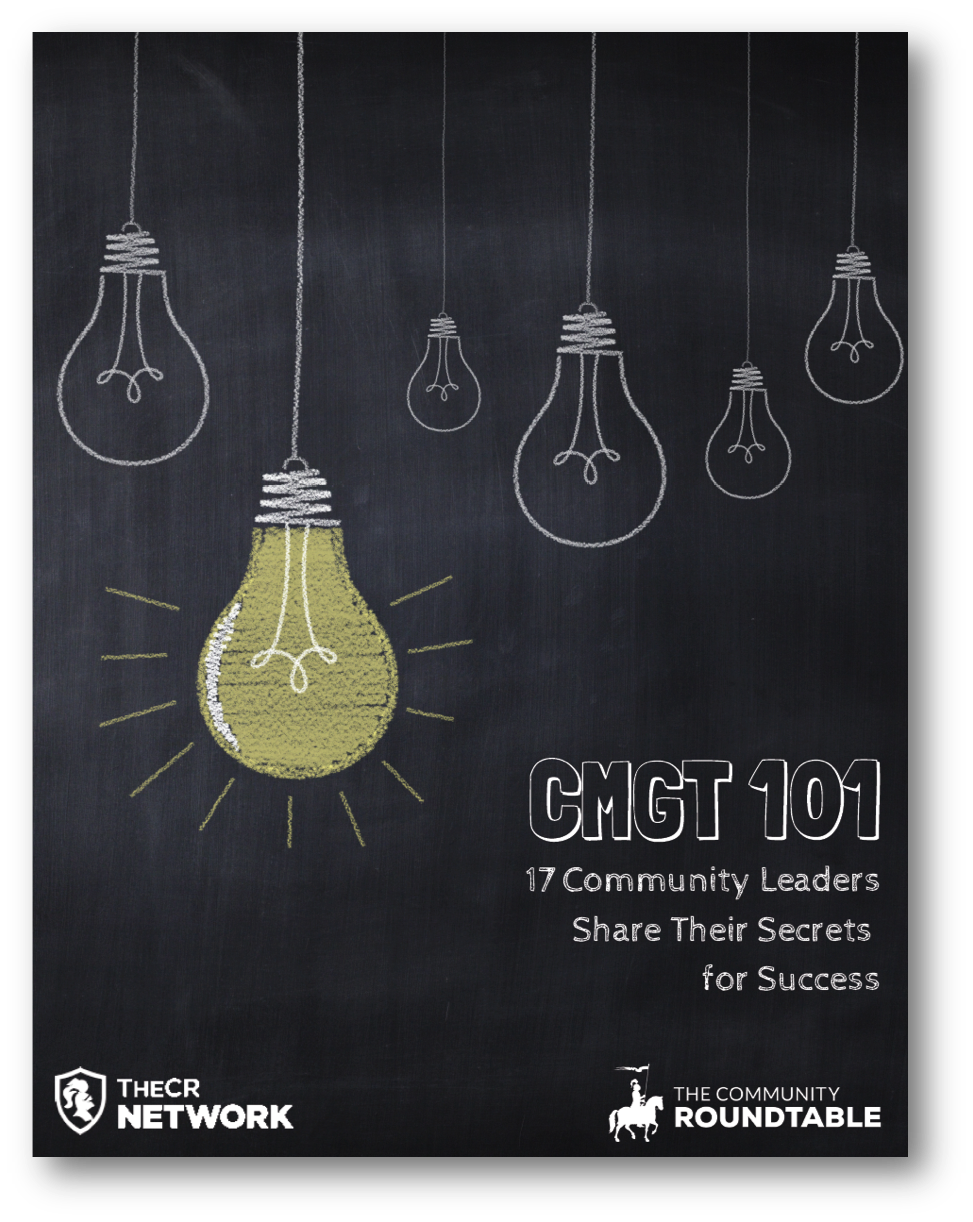


 Welcome to the latest episode in our community management podcast series, “
Welcome to the latest episode in our community management podcast series, “
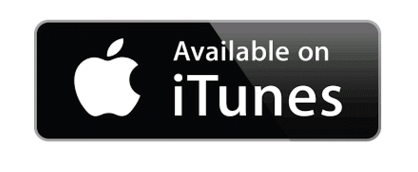


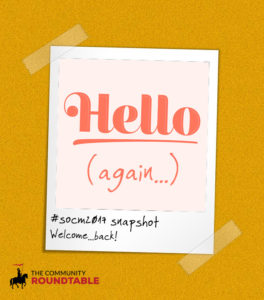 One of the most consistent findings in our
One of the most consistent findings in our 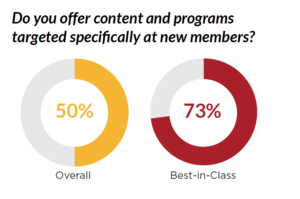 If you’re like many communities – you don’t follow up again to see how the settling in process has gone. But maybe you should.
If you’re like many communities – you don’t follow up again to see how the settling in process has gone. But maybe you should.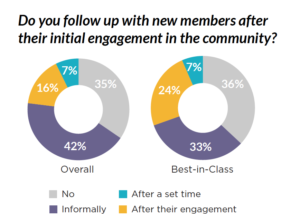 So what can you do?
So what can you do?